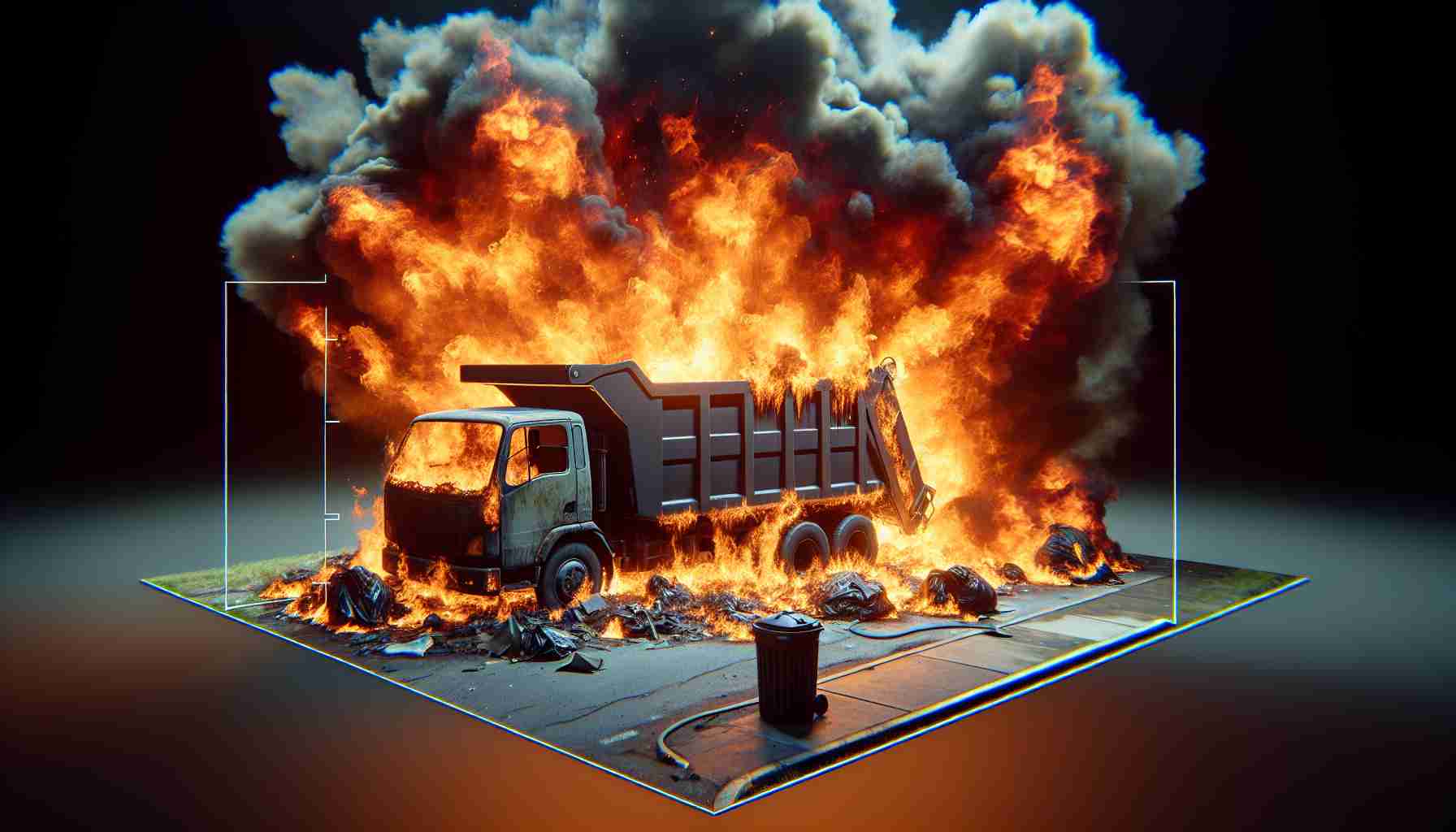### A Dangerous Disposal: The Hidden Risks of Vapes
On the morning of January 21, a refuse vehicle fire broke out in Chilwell, prompting immediate action from Stapleford and Highfields fire crews. The Nottinghamshire Fire and Rescue Service confirmed that the fire likely stemmed from a malfunctioning vape battery disposed of carelessly in a bin.
Authorities emphasize the hazards posed by lithium-ion batteries, commonly found in vapes, smartphones, and laptops. These batteries can ignite spontaneously when improperly discarded. The Broxtowe Borough Council confirmed that the quick response from fire crews prevented any injuries during the incident.
As debris from the fire was ejected into a nearby parking area, the council’s teams swiftly worked to ensure that regular bin collection schedules remained intact. Public safety reminders have been issued regarding the disposal of lithium batteries, which burn at dangerously high temperatures and are challenging to extinguish once ignited.
Residents are strongly urged to dispose of their vapes and other battery-powered items safely at designated recycling points, such as household waste centers or specific bins located in many supermarkets. Proper disposal is crucial in preventing future accidents and safeguarding the community from potential fire hazards.
Vaping and Its Environmental Fallout
The rising prevalence of vaping poses significant societal and environmental challenges that extend far beyond individual health. As disposable vapes fill the market, they contribute to a burgeoning waste crisis. In fact, the UK’s Environmental Agency reported that around **1.3 million vapes are discarded each week**, a statistic that emphasizes the enormous scale of waste generated by this trend.
The global economy also feels the effects. As countries tighten regulations on electronic waste, businesses involved in vape production may face increased operational costs and stricter compliance requirements. Industries are now under scrutiny for their role in exacerbating pollution. Proponents of sustainable practices argue that without proactive measures, we risk a **significant burden on municipal waste systems**.
Moreover, the environmental aftershocks of improperly disposed lithium-ion batteries are profound. These batteries not only pose fire risks but also **leach toxic materials** into the soil and waterways, jeopardizing local ecosystems. Future trends indicate a growing public demand for responsibly sourced materials and innovative recycling programs.
The long-term significance cannot be overstated; societal shifts towards sustainability may either flourish or falter, hinged on the collective response to the challenges presented by vaping waste. Addressing these issues is imperative to safeguarding our environment and fostering a culture of responsible consumption.
Fire Risks and How to Safely Dispose of Vapes: What You Need to Know
### Understanding the Risks of Disposable Vapes
The recent fire incident in Chilwell, linked to a malfunctioning vape battery, serves as a critical reminder of the dangers associated with improper disposal of lithium-ion batteries. These batteries, found not only in vapes but also in smartphones, laptops, and other consumer electronics, present significant fire risks if discarded carelessly.
### Why Lithium-Ion Batteries Are Dangerous
Lithium-ion batteries can ignite spontaneously when they are damaged or improperly discarded. Once ignited, these batteries can burn at extremely high temperatures, making them difficult to extinguish. The combustion of lithium-ion batteries releases toxic fumes, contributing to air pollution and posing health risks to people nearby.
### Safety Measures for Disposal
Authorities recommend several best practices to ensure the safe disposal of vapes and their batteries:
1. **Use Designated Recycling Points**: Always dispose of vapes and lithium batteries at designated recycling locations, such as municipal waste centers or collection bins in supermarkets to prevent fire hazards.
2. **Do Not Throw Batteries in Regular Trash**: Regular waste disposal is inadequate for lithium-ion batteries, as the risk of ignition remains high under pressure or heat in landfills.
3. **Follow Local Guidelines**: Each municipality may have different disposal guidelines. Familiarize yourself with local regulations and services concerning hazardous waste.
### Benefits of Proper Disposal
Disposing of vapes and batteries responsibly not only protects the community but also supports environmental sustainability efforts. Proper recycling can help recover valuable materials, reducing the environmental impact associated with mining and manufacturing.
### Features of Effective Disposal Programs
Several features contribute to the effectiveness of battery disposal programs:
– **Accessibility**: More recycling points should be made available to the public to facilitate easy disposal.
– **Awareness Campaigns**: Local governments can implement public safety campaigns that emphasize the dangers of improper disposal and guide citizens on how to recycle properly.
– **Enhanced Regulations**: Policymaking that encourages manufacturers to create eco-friendly products and packaging can drive a reduction in hazardous waste.
### Future Trends and Innovations
With the increasing popularity of vapes, it’s essential to keep an eye on trends regarding battery technology and waste management. Innovations in battery designs, such as the development of safer, biodegradable, or recyclable materials, are on the rise. Moreover, integrating technology for better tracking and recycling practices is expected to evolve as communities seek to mitigate the risks associated with battery disposal.
### Conclusion: Protecting Our Community
The incident in Chilwell emphasizes that the hidden dangers of improper vape disposal can lead to severe consequences. By understanding the risks and adhering to best practices for disposal, individuals can play a crucial role in ensuring public safety and environmental protection.
For more information on how to safely dispose of electronic waste, visit Environment Australia.
